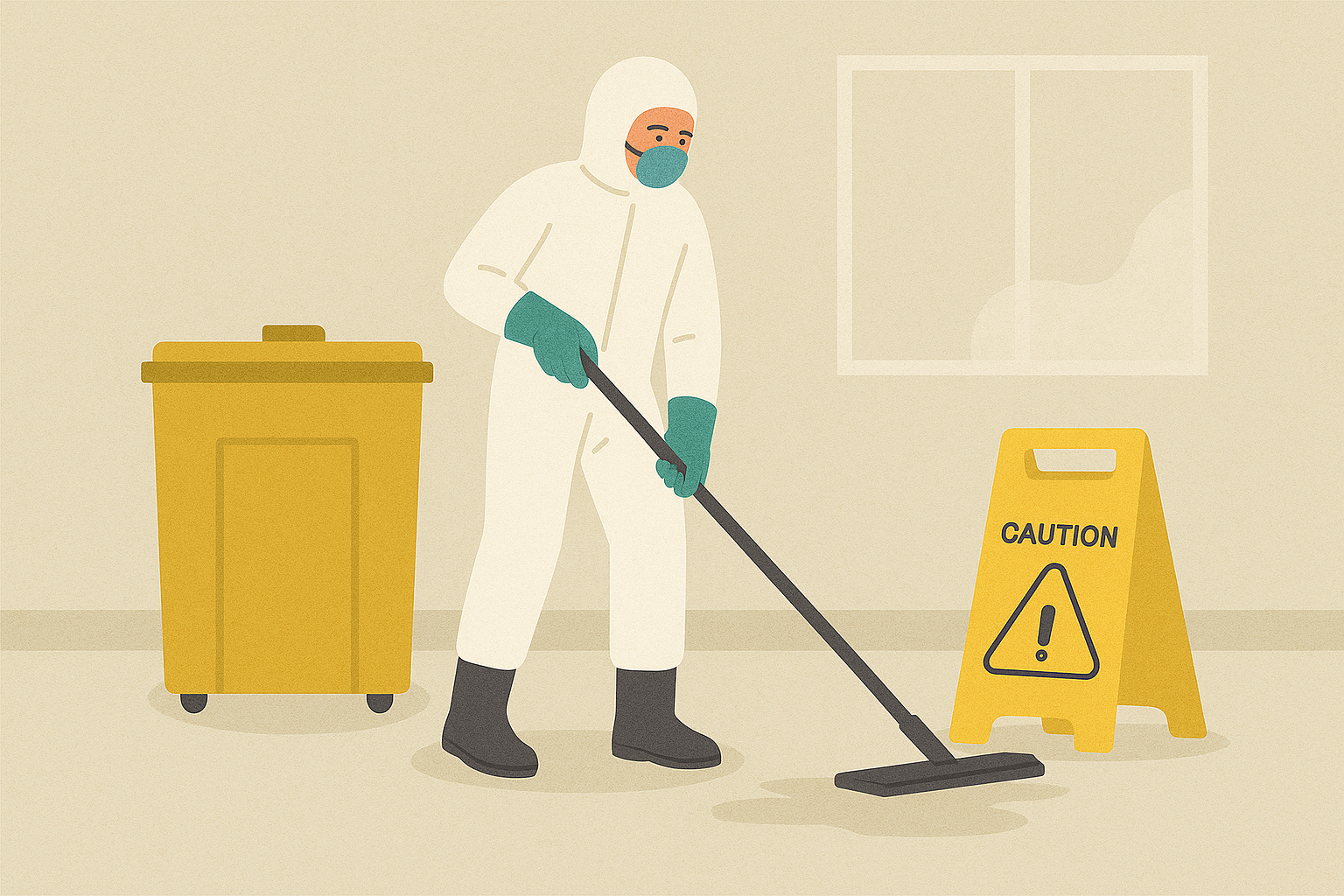Not every mess can be cleaned with a mop and a bottle of disinfectant. When tragedy strikes, whether it’s an unattended death, violent crime, suicide, or traumatic accident, families are often left with more than grief. They’re left with a space that feels frozen in time and filled with painful reminders of what happened.
That’s where professional biohazard and trauma scene cleanup services come in. These aren’t basic cleaning jobs. They’re highly specialized services designed to restore safety, dignity, and peace of mind when it’s needed most.
What Is Biohazard and Trauma Scene Cleanup?
Biohazard cleanup involves the removal and disinfection of materials contaminated by blood, bodily fluids, or other potentially infectious substances. Trauma cleanup is a broader category that includes any cleanup after a serious physical event or emotional trauma, such as an accident, death, or crime.
These services are focused on health, safety, and compliance with strict regulations. But they also play an emotional role in helping families and property owners begin to move forward.
Who Typically Needs These Services?
Biohazard and trauma cleanup may be required after:
-
An unattended death where the body was undiscovered for some time
-
A suicide or attempted suicide
-
A homicide or violent crime
-
A major accident in a home, workplace, or public setting
-
The discovery of hoarded or unsanitary conditions
-
Exposure to infectious disease or hazardous biological materials
These situations may involve blood, tissue, body fluids, or dangerous pathogens. Improper cleanup can pose serious health risks, including exposure to Hepatitis B, Hepatitis C, HIV, or bacteria such as MRSA.
Who Handles the Cleanup?
Police, EMTs, and medical examiners do not clean crime scenes or trauma sites. Once their investigation or medical response is complete, the responsibility shifts to the property owner or next of kin.
This is where professional trauma and biohazard cleanup teams step in. These companies are trained in OSHA and EPA safety protocols, and they use commercial-grade protective equipment and cleaning agents. Many teams include technicians certified in crime scene or trauma cleanup, and some specialize in discreet, compassionate service for grieving families.
What’s Included in the Cleanup Process?
While every job is different, most professional cleanup services include:
-
On-site assessment and hazard containment
-
Removal of contaminated materials (flooring, drywall, bedding, etc.)
-
Thorough cleaning and disinfection using EPA-registered solutions
-
Odor neutralization
-
Safe transport and disposal of biohazardous waste
-
Final testing to confirm safe re-entry
Some companies may also assist with minor repairs or referrals to contractors for restoration work.
How Long Does Cleanup Take?
Cleanup time depends on the size of the space and the extent of contamination. Most residential scenes can be cleaned in one to two days. In more complex situations, such as large-scale contamination or decomposition, it may take longer.
A good cleanup company will give you a clear timeline and set realistic expectations during the initial assessment.
Is Cleanup Covered by Insurance?
In many cases, yes. Homeowners insurance policies often cover biohazard and trauma scene cleanup. Coverage may include:
-
Unattended deaths
-
Suicides
-
Homicides
-
Accidental injuries involving blood or bodily fluids
It’s important to call your insurer as soon as possible. A professional cleanup company can also help you document the scene and file the claim correctly.
How to Choose the Right Cleanup Company
Not all cleaning companies are equipped for trauma and biohazard cleanup. Here are a few things to look for:
-
Proper certification and licensing for biohazard disposal
-
OSHA-compliant training
-
Insurance and bonding
-
24/7 emergency response
-
Compassionate, discreet approach
-
Positive reviews or referrals
You’re not obligated to go with the first name someone gives you. Take a moment to make sure they meet professional standards and treat you with care.
Common Terms You Might Hear
There are many ways to describe these services. Some of the most common include:
-
Biohazard Cleanup
-
Trauma Scene Cleanup
-
Death Cleanup
-
Suicide Cleanup
-
Homicide Cleanup
-
Unattended Death Cleanup
-
Blood Cleanup
-
Forensic Cleaning
-
Hazardous Scene Cleaning
-
Aftermath Cleanup
-
Emergency Cleanup Services
-
Decontamination Services
While the terms may vary, the core focus is always health, safety, and helping people recover after a traumatic event.
A Dignified Path Forward
What happens after a tragedy is deeply personal. But the physical space doesn’t have to remain a reminder of what occurred. Cleanup professionals are trained not only to handle hazardous materials but also to support people with dignity and respect during one of the hardest moments of their lives.
If you or someone you know is facing this situation, you’re not alone. Help exists, and it starts with understanding your options and choosing a qualified team to walk beside you.
If you have feedback, questions, or ideas for future articles or Information Hubs, please contact us. Your insights help us create valuable content.


